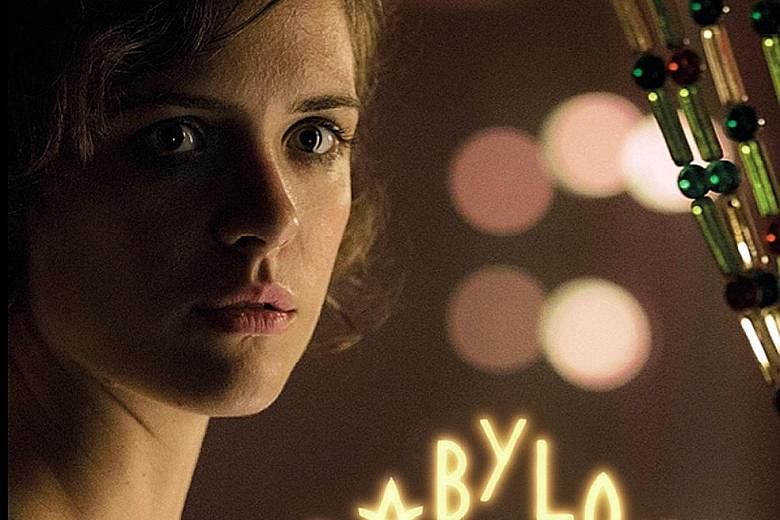BERLIN • It is the spring of 1929 and this city is a fast-moving modern metropolis where artistic and sexual experimentation flourishes against a backdrop of organised crime, political street battles and a fragile democratic order.
Welcome to the world of Babylon Berlin. This new epic crime drama, set during the Weimar Republic, the chaotic 15-year era that preceded the Third Reich, is widely predicted to become an international television sensation.
Reportedly the most expensive German-language television show ever produced, Babylon Berlin aims to build on the success of other recent German hits, such as Deutschland and The Same Sky.
This 16-part, two-season show has already been sold to 60 television markets. It had its British premiere on Sunday night on Sky Atlantic and will begin streaming on Netflix in the United States on Jan 30 next year.
Based on the best-selling novels by Volker Kutscher, the show centres on Gereon Rath, a police detective from Cologne played by Volker Bruch, who arrives in the unfamiliar capital to investigate a blackmail plot involving a sadomasochistic porn film.
The troubled young detective is assisted by Charlotte Ritter, a police typist played by Liv Lisa Fries, who strives to make the most of Weimar Berlin's new freedoms to escape the poverty of her bleak, overcrowded tenement.
By day, she picks up sporadic work at police headquarters and, by night, turns tricks at Moka Efti, a nightclub and temple to hedonism.
The complicated plot encompasses a Russian freight train carrying poison gas and gold; secret military manoeuvres; and a brutal May Day confrontation between police and communists.
There are Soviet agents and Trotskyist agitators, a cross-dressing jazz singer, an Armenian mafia boss and a rich industrialist in cahoots with a group of army officers.
The star of the show, however, is Berlin. The lavish production lovingly re-creates the city's 1920s streets, cafes and nightclubs. About 70 per cent of the series was shot on location, with the rest filmed on a massive set at the historic Babelsberg studios.
Costing €38 million (S$60 million) to produce, the 180-day shoot involved three crews and three writer/directors: Tom Tykwer (Perfume, 2006; and Run Lola Run, 1998), Achim von Borries and Henk Handloegten, who had all long sought to work together on a project based on this period.
"The three of us had the idea to do a big panoramic view of the society at the end of the 1920s, the Weimar Republic, before we knew the novels," Handloegten said.
Paul Cooke, professor of world cinemas at the University of Leeds, said television depictions of this period have been rare.
"Most obviously, Fassbinder's Berlin Alexanderplatz, which was a big hit in the 1970s," he said. "It's touched on in Edgar Reitz's Heimat, which was a huge international hit. But it's later periods of history that tend to be the focus of German productions that do well internationally."
The makers of Babylon Berlin, however, were interested in exploring the prelude to the Third Reich. "All these people didn't fall from the sky as Nazis," Handloegten said. "They had to become Nazis."
In writing the screenplay, the creators made some key changes to the books.
As well as expanding the political elements, they turned Rath into a more sympathetic character, traumatised by his experiences in World War I, prone to fits of shaking and addicted to morphine.
Ritter is no longer a bourgeois law student, but a street-smart working-class woman.
"We felt strongly that we should have a main character from this proletarian background because Berlin was always a poor city," Handloegten explained.
Work has already begun on Season 3 and there is plenty more source material to draw on. Kutscher has already written six Gereon Rath novels and plans another three, culminating with Kristallnacht in 1938.
The television adaptation is already a commercial and critical hit at home. Within a week of its German premiere on Oct 13, the first episode had been watched by 1.2 million people, a German viewing figure bested only by HBO series Game Of Thrones.
The weekly magazine Der Spiegel described the show as a "masterpiece" and a "great, dizzying panorama" and predicted that it could be "the first big German TV production since Das Boot to have really relevant success abroad".
NYTIMES

